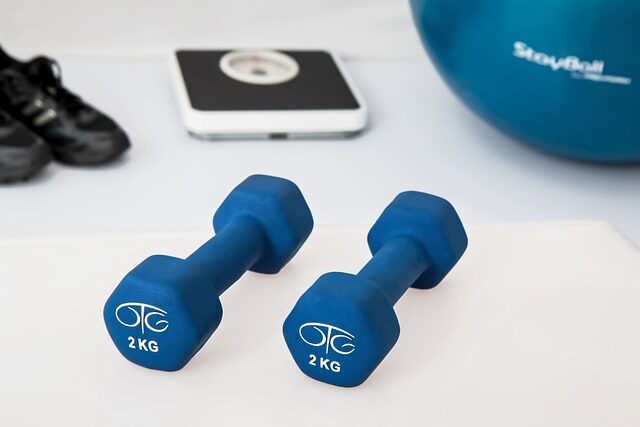Science-backed tips to lose weight fast and sustainably

Embarking on a weight loss journey can often feel overwhelming. With the vast array of diets and strategies available, it's essential to rely on science-backed tips to ensure both immediate and long-term success. This article will guide you through effective, evidence-based practices to help you lose weight fast and sustainably.
Losing weight shouldn't involve quick fixes or unhealthy shortcuts. Instead, focusing on sustainable weight management strategies is vital for long-lasting health benefits. Let's explore how you can achieve your weight loss goals responsibly and effectively.
- How to Follow Science-Backed Tips to Lose Weight Fast?
- What Are the Best Methods for Sustainable Weight Loss?
- How Does Intermittent Fasting Support Weight Loss?
- What Are Effective Strategies for Mindful Eating?
- How Important Is Fiber Intake in Weight Loss?
- What Role Does Physical Activity Play in Weight Loss?
- How Can You Maintain Weight Loss Over Time?
- Related Questions on Weight Loss
How to Follow Science-Backed Tips to Lose Weight Fast?
Weight loss is not just about shedding pounds quickly; it's about making lifestyle changes that stick. Effective methods for rapid weight loss often involve a combination of diet and exercise tailored to individual needs.
For a start, consider incorporating more protein, healthy fats, and vegetables into your meals. Protein helps build muscle and keep you feeling full, while healthy fats like those found in avocados and nuts promote satiety and provide essential nutrients. Vegetables are low in calories but high in fiber, aiding in weight loss by helping you feel full longer.
Next, focus on caloric intake management. Determine the number of calories you need to consume each day to lose weight and stick to that number. Using a food diary or an app can help track your intake and keep you accountable.
Additionally, avoiding sugary drinks and replacing them with water can significantly affect your weight loss efforts. Water aids digestion, prevents overeating, and boosts metabolism—all crucial for losing weight effectively.
What Are the Best Methods for Sustainable Weight Loss?
Sustainable weight loss is a marathon, not a sprint. It's about adopting healthy eating habits that you can maintain over time without feeling deprived.
One of the key strategies is to practice mindful eating. This involves paying close attention to the food you eat and savoring each bite, which helps prevent overeating and makes meals more enjoyable.
Incorporating regular physical activity is also an essential component of sustainable weight loss. Aim for a mix of cardio exercises, which burn calories, and strength training, which builds muscle and boosts metabolism.

Another tip is to ensure you're getting enough sleep each night. Poor sleep can throw off appetite hormones and lead to weight gain, while good sleep patterns help maintain a healthy weight.
How Does Intermittent Fasting Support Weight Loss?
Intermittent fasting (IF) is a dietary approach that cycles between periods of eating and fasting. It's one of the intermittent fasting for weight loss strategies that have gained popularity due to its potential to promote significant weight loss.
The 16/8 method, where you eat during an 8-hour window and fast for the remaining 16 hours, is a common IF approach. This fasting period encourages the body to utilize fat stores for energy, leading to weight loss.
However, IF may not be suitable for everyone. It's important to listen to your body and consult with a healthcare professional before starting any fasting regimen, especially if you have underlying health conditions.
What Are Effective Strategies for Mindful Eating?
Mindful eating practices for dieting are about being fully present during meals, paying attention to the tastes, textures, and smells of your food, and listening to your body's hunger and fullness cues.
- Start by serving smaller portions to avoid overeating.
- Eliminate distractions like TV or smartphones during meals to focus on eating.
- Eat slowly and chew your food thoroughly to aid digestion and give your brain time to register fullness.
- Check in with yourself during meals to assess your hunger levels and stop eating when you're satisfied, not stuffed.
How Important Is Fiber Intake in Weight Loss?
Fiber plays a crucial role in weight loss. It adds bulk to your diet, which helps you feel full with fewer calories. High-fiber foods take longer to chew and slow down the rate at which your stomach empties, further promoting satiety.
A diet rich in fiber can also have other health benefits, such as reducing the risk of heart disease and type 2 diabetes. Aim for foods like fruits, vegetables, legumes, and whole grains to boost your daily fiber intake.
Incorporating a fiber supplement can also be beneficial, especially if you struggle to get enough fiber through your diet alone. However, increasing fiber intake too quickly can lead to digestive discomfort, so it's essential to do so gradually.
What Role Does Physical Activity Play in Weight Loss?
Exercise routines for weight loss are as important as diet when it comes to shedding pounds. Not only does physical activity burn calories, but it also improves muscle strength and boosts your metabolism.

Cardiovascular exercises like walking, running, and swimming are great for burning calories and improving heart health. To maximize weight loss, combine cardio with strength training, which helps build muscle. More muscle mass equates to a higher metabolism, which can lead to more effective weight loss.
Remember, consistency is key. Aim for at least 150 minutes of moderate-intensity exercise or 75 minutes of high-intensity exercise per week, as recommended by health authorities.
Before starting any new exercise program, it's wise to consult with a health professional, especially if you have any pre-existing health conditions.
How Can You Maintain Weight Loss Over Time?
Maintaining weight loss over time requires a long-term commitment to healthy habits. It's not just about reaching a goal weight; it's about setting up a lifestyle that you can maintain for life.
Continuing to track your food intake, staying active, and ensuring you're eating a balanced diet rich in nutrients are all crucial for maintaining your weight loss. It's also important to allow yourself occasional treats to prevent feelings of deprivation that can lead to binge eating.
Finally, building a support network, whether it's friends, family, or a weight loss group, can provide the encouragement and accountability you need to stay on track.
What Is the Scientifically Proven Fastest Way to Lose Weight?
The fastest way to lose weight that is supported by science involves a combination of a calorie-controlled diet and regular physical activity. Intermittent fasting can also accelerate weight loss for some individuals.
However, it's important to note that rapid weight loss can sometimes be unsustainable and may lead to muscle loss, nutrient deficiencies, and other health issues. It's crucial to approach weight loss with a focus on health and sustainability.
How Can I Lose Weight Fast but Sustainably?
To lose weight quickly yet sustainably, focus on making incremental changes to your diet and lifestyle that you can maintain long-term. Eating a balanced diet, exercising regularly, and practicing mindful eating are all essential components.

Avoid extreme diets or exercise regimens that are not sustainable. These may lead to quick results, but the weight is often regained once normal habits resume.
How Can I Lose Weight Fast and Sustain It?
Combining a sensible eating plan with regular physical activity is the best way to lose weight fast and keep it off. Pay attention to portion sizes, choose nutrient-dense foods, and incorporate both cardio and strength training into your routine.
Adopting habits like meal planning and food tracking can also help you maintain your weight loss by keeping you mindful of what you're consuming.
What Is the 30 30 30 Rule for Weight Loss?
The "30 30 30" rule is a concept suggesting that for sustainable weight loss, one should aim to get 30 grams of protein within 30 minutes of waking and ensure that at least 30% of their diet comes from protein.
This rule emphasizes the importance of protein in weight management, as it can help reduce appetite, increase satiety, and preserve muscle mass during weight loss.
Now, let's take a deeper dive into the subject with a video that highlights some key strategies for losing weight sustainably:
By adhering to these science-backed tips and strategies, you can achieve weight loss that is not only rapid but also sustainable. It's about making informed choices, understanding your body's needs, and embracing a holistic approach to your well-being.

Leave a Reply